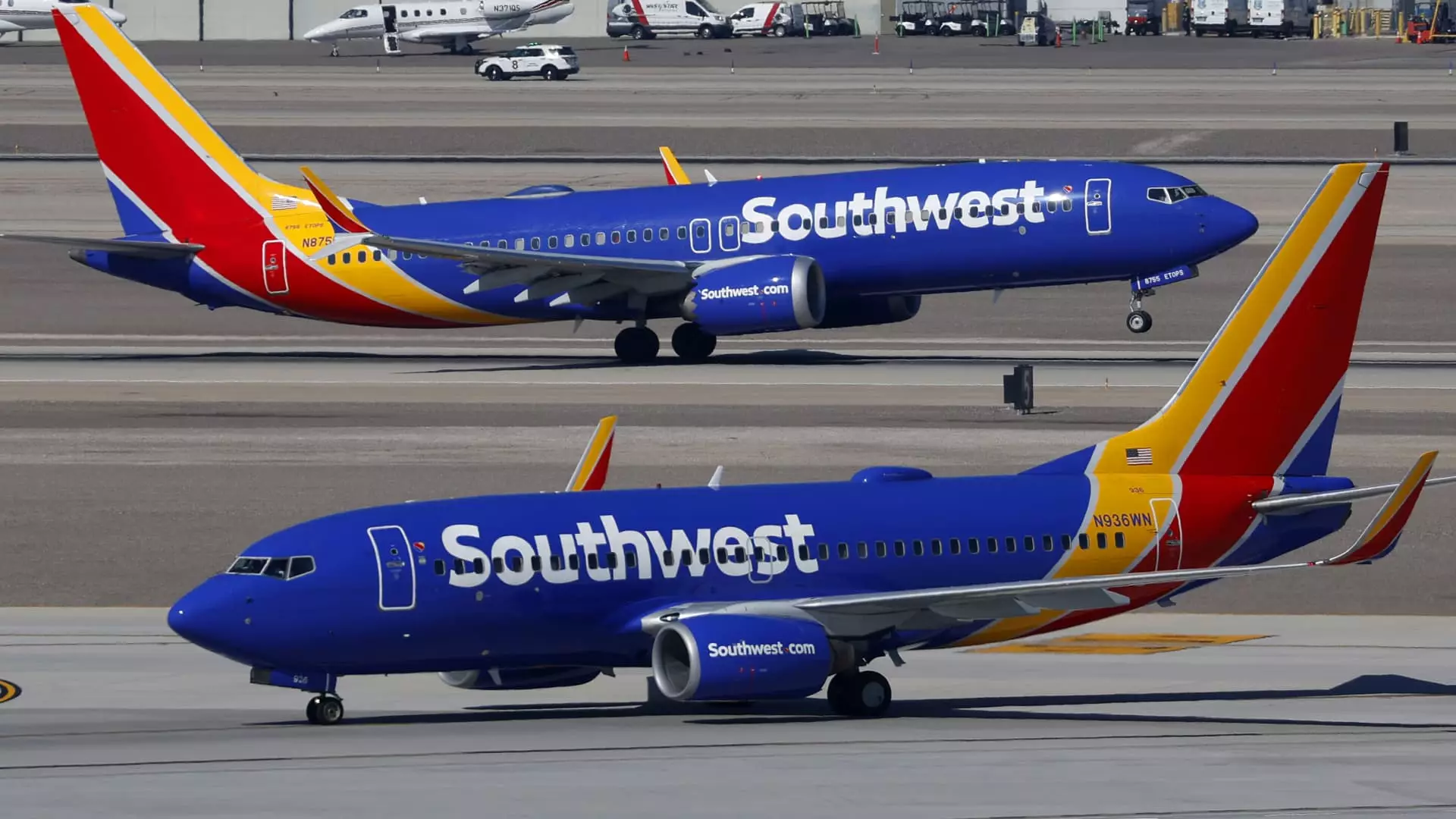For over half a century, Southwest Airlines revolutionized the flying experience by championing open seating, creating a uniquely laid-back and egalitarian environment at 30,000 feet. This policy fostered a sense of community, spontaneity, and fairness, defying the rigid, seat-assigned norms that dominated the industry. Yet, the airline industry is no stranger to evolution, and Southwest’s latest move signals a stark shift from its core identity. Moving towards assigned seating, starting January 27, marks a calculated prioritization of efficiency and revenue over tradition and customer comfort. This reckless abandonment of its pioneering open seating model exposes Southwest’s vulnerability in addressing its core values and customer expectations, risking alienation among its loyal flyers who cherished the airline’s previous approach.
A Double-Edged Sword: Financial Calculations Outweigh Passenger Experience
Southwest’s decision is primarily driven by the relentless pursuit of profits. The airline’s leadership forecasts an $800 million boost in earnings before interest and taxes this year alone, with estimates reaching $1.7 billion in 2026. As competitors adopt more lucrative ancillary fees and premium offerings, Southwest finds itself compelled to modernize its revenue stream. Charging for assigned seats and checked bags is merely a plug in a growing strategy aimed at appeasing Wall Street’s appetite for increased profitability. While this might seem pragmatic, it fundamentally undercuts the sense of communal camaraderie that made Southwest distinctive. The airline’s move to assign seats, which will now be tied to loyalty status and fare types, effectively commodifies the flying experience, transforming what was once a democratic process into a tiered privilege system. The prioritization of high-tier customers for early boarding and preferred seats marginalizes the traditional egalitarian spirit that made Southwest a trailblazer in low-cost, customer-friendly travel.
Risking Customer Loyalty for Short-Term Gains
The impact on consumers is undeniable. Fans of Southwest’s open seating will now face a new reality where securing a good seat might involve additional costs or strategic planning. The airline’s choice to introduce multiple boarding groups based on seat selection and loyalty status risks creating a two-tier system, eroding the inclusive atmosphere that helped it nurture a loyal customer base. Families, who once relished the posibilidad of sitting together with minimal fuss, will now need to purchase specific seats to ensure cohesion, potentially alienating budget-conscious travelers and those who valued spontaneity. The airline claims that its new boarding protocol has been tested to maintain efficiency, but it is unlikely to replicate the excitement and fairness embedded in the previous process. In seeking efficiency and higher revenue, Southwest risks losing the sense of trust and community that, in many ways, defined its brand.
The Industry’s Competitive Pressure and the Future of Affordable Flying
Southwest’s overhaul can be viewed as a defensive maneuver amid a fiercely competitive industry. Airlines like Delta and American have already embraced assigned seating and ancillary fees, creating a more segmented and profit-driven environment. Southwest’s move to follow suit reveals an acknowledgment that maintaining its original free-for-all approach may no longer be sustainable in a world dominated by consumers willing to pay extra for comfort, convenience, and assurance of seat choice. Still, this strategic pivot brings with it perilous questions: will the airline’s core demographic—those who valued affordability, simplicity, and social egalitarianism—shun the new paradigms? Or will they adapt, recognizing that staying relevant requires embracing change, even at the expense of tradition? The balancing act will determine whether Southwest can strike a proper harmony between profit motive and customer loyalty, but one thing remains clear: in its pursuit of higher earnings, it has sacrificed a vital part of its previous soul.
An Uncertain Road Ahead
Southwest’s evolution reflects a broader industry trend toward commodification and revenue optimization. But whether this strategy will pay off remains uncertain. For years, Southwest’s open seating policy stood as a symbol of its pioneering spirit—a departure from corporate rigidity. Now, by ending that chapter, the airline risks alienating a segment of its most loyal customers who appreciated its simplicity and fairness. The move signifies a brutal choice: prioritize immediate financial gains and efficiency at the expense of the very brand identity that once set Southwest apart. As other airlines continue to diversify their revenue streams through ancillary charges and tiered service offerings, Southwest’s gamble will test whether tradition can be sacrificed for profit without irreparably damaging its reputation or customer base. The future of affordable, egalitarian flying hangs in the balance, shaped by decisions that threaten to erode the essence of what made Southwest loved in the first place.


Leave a Reply